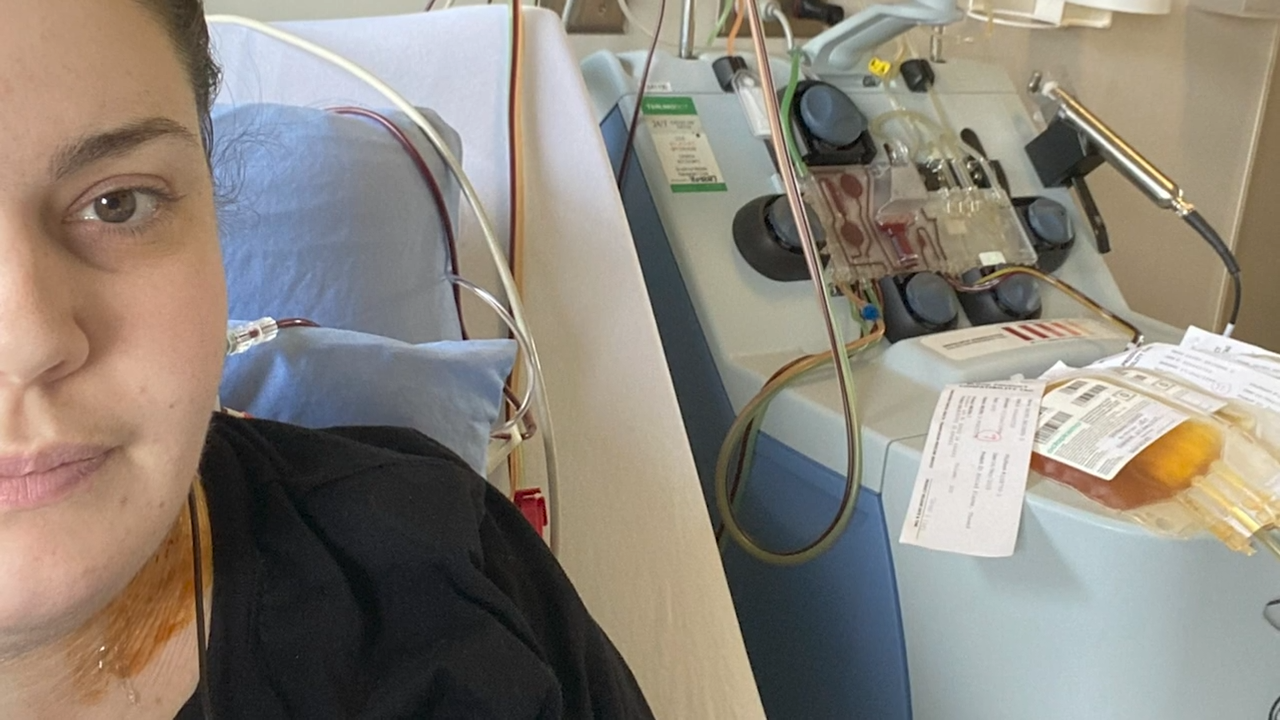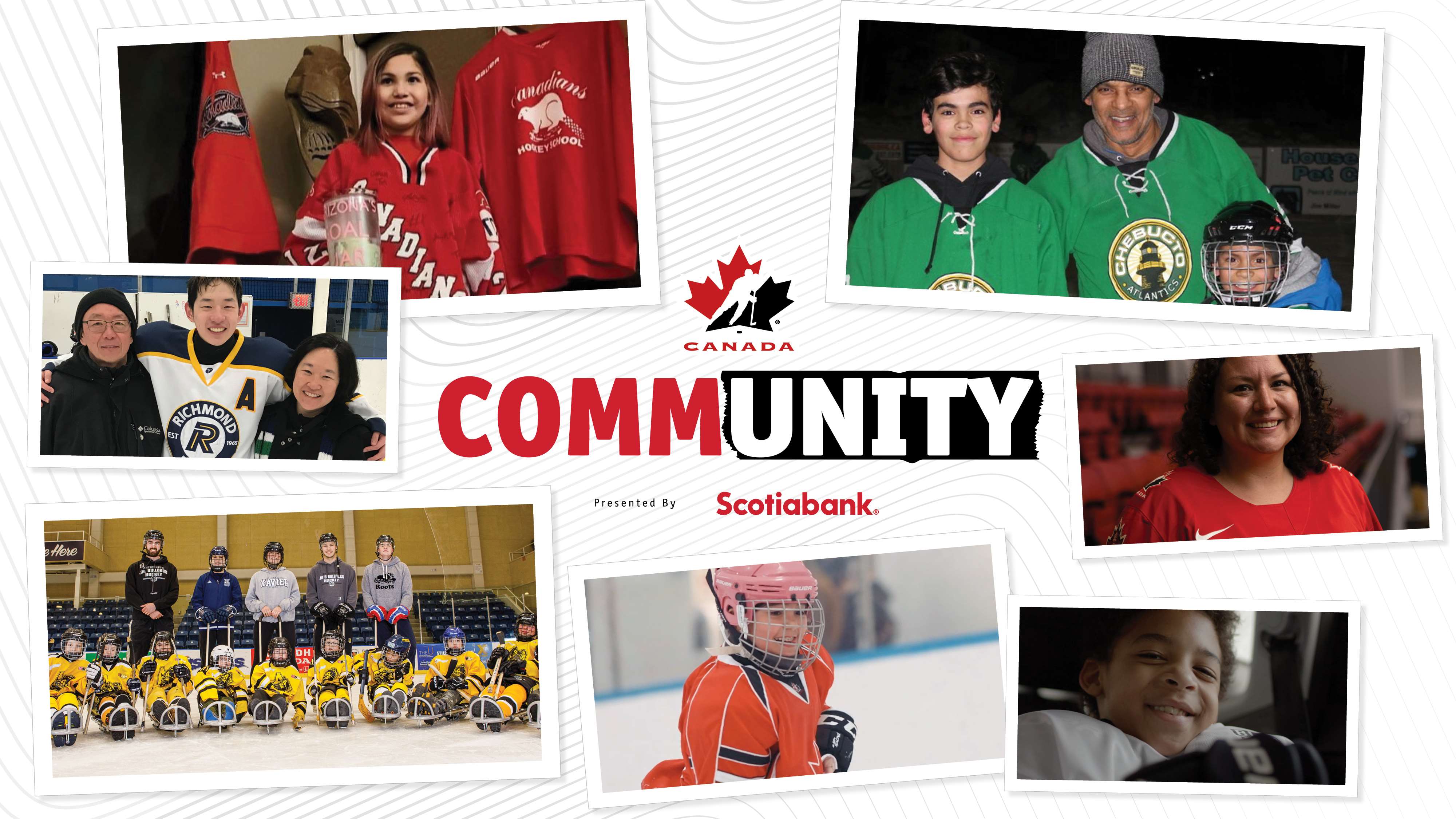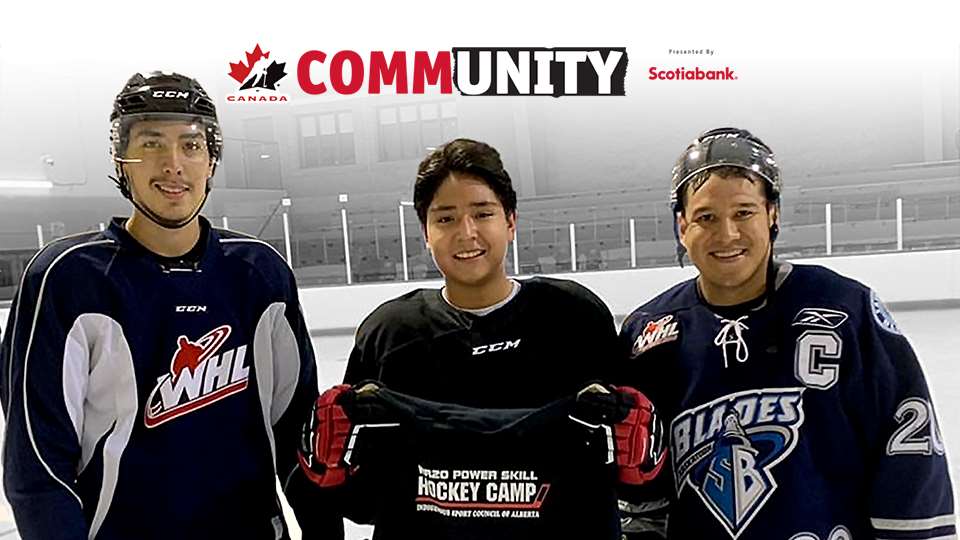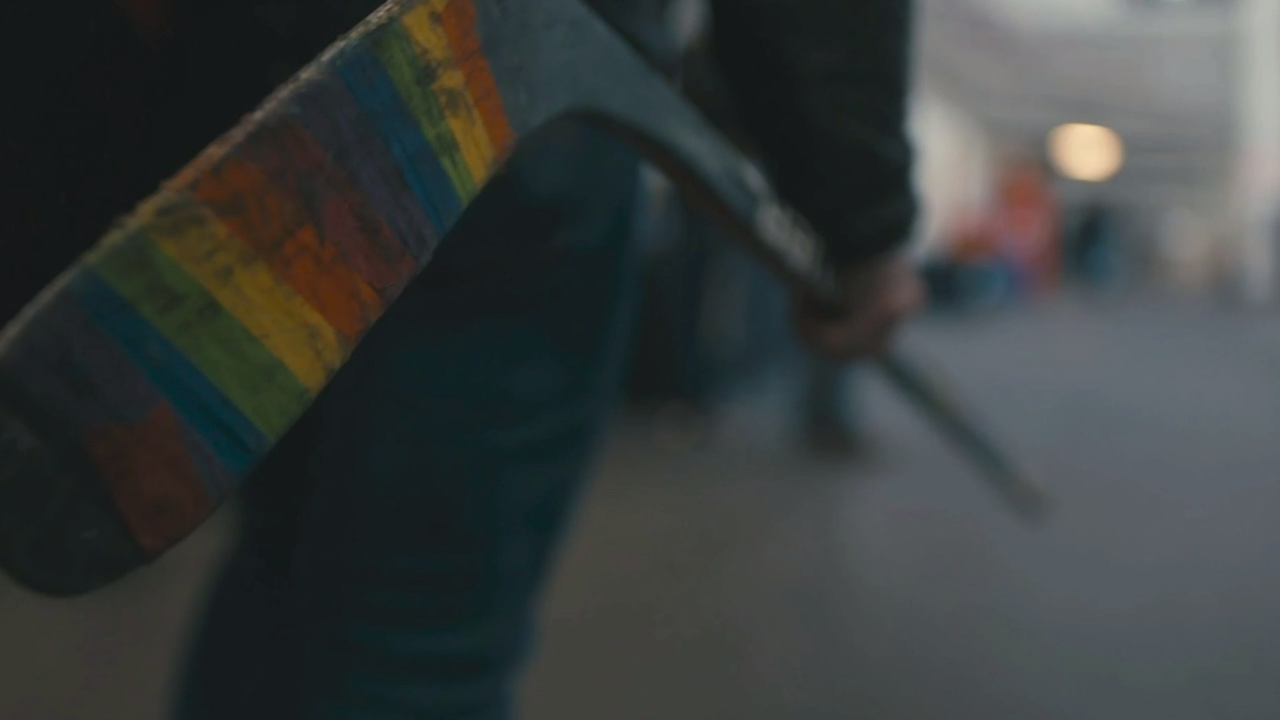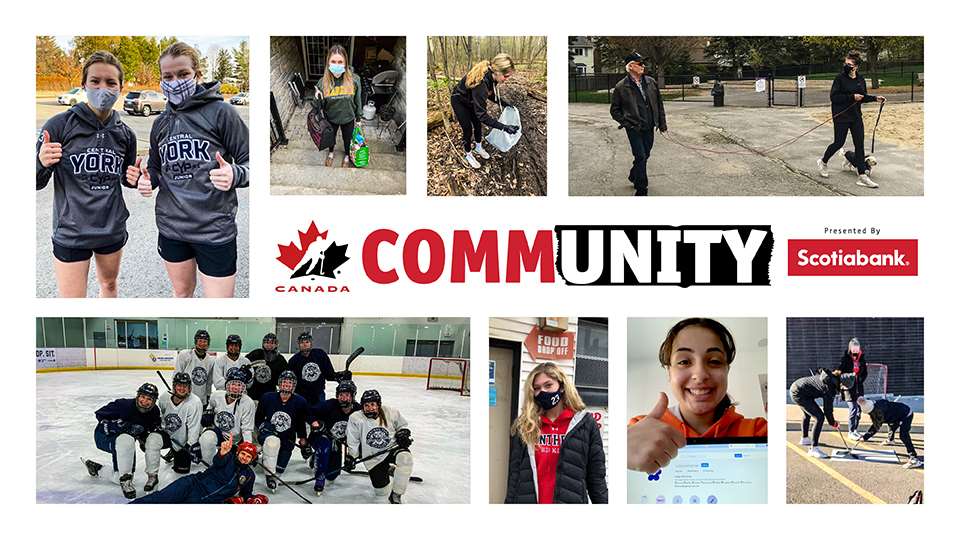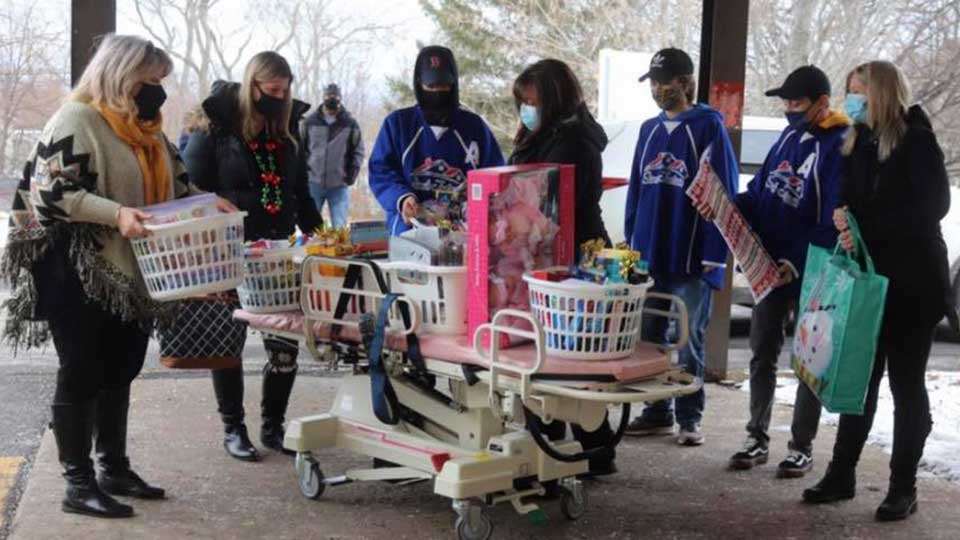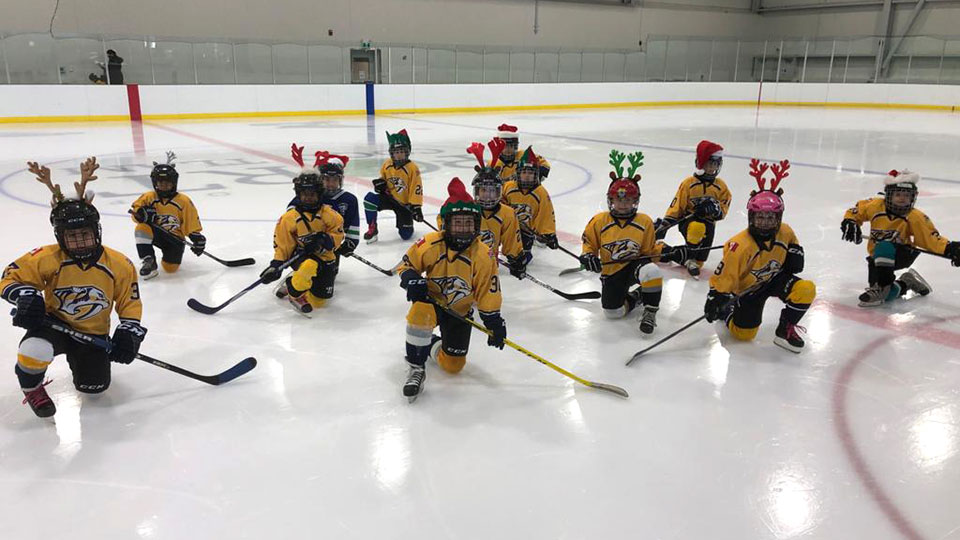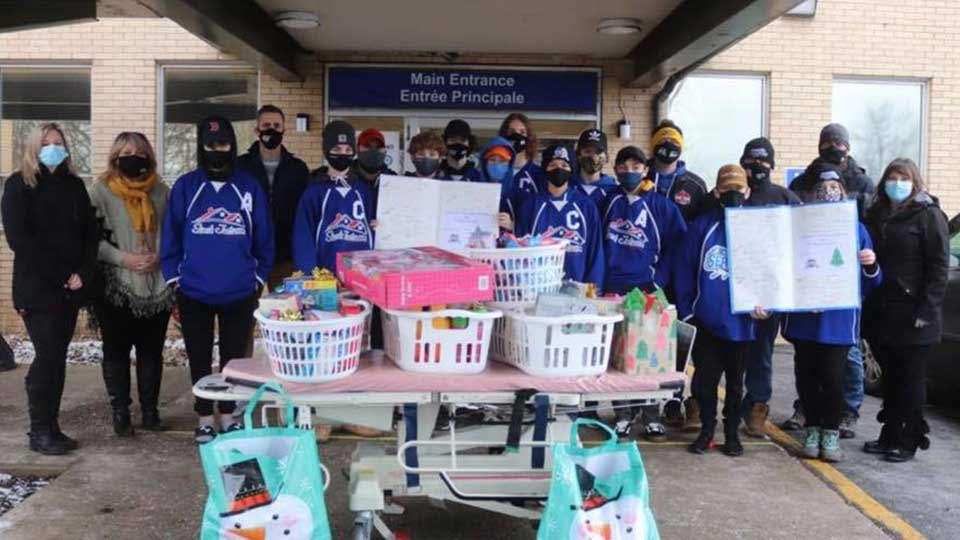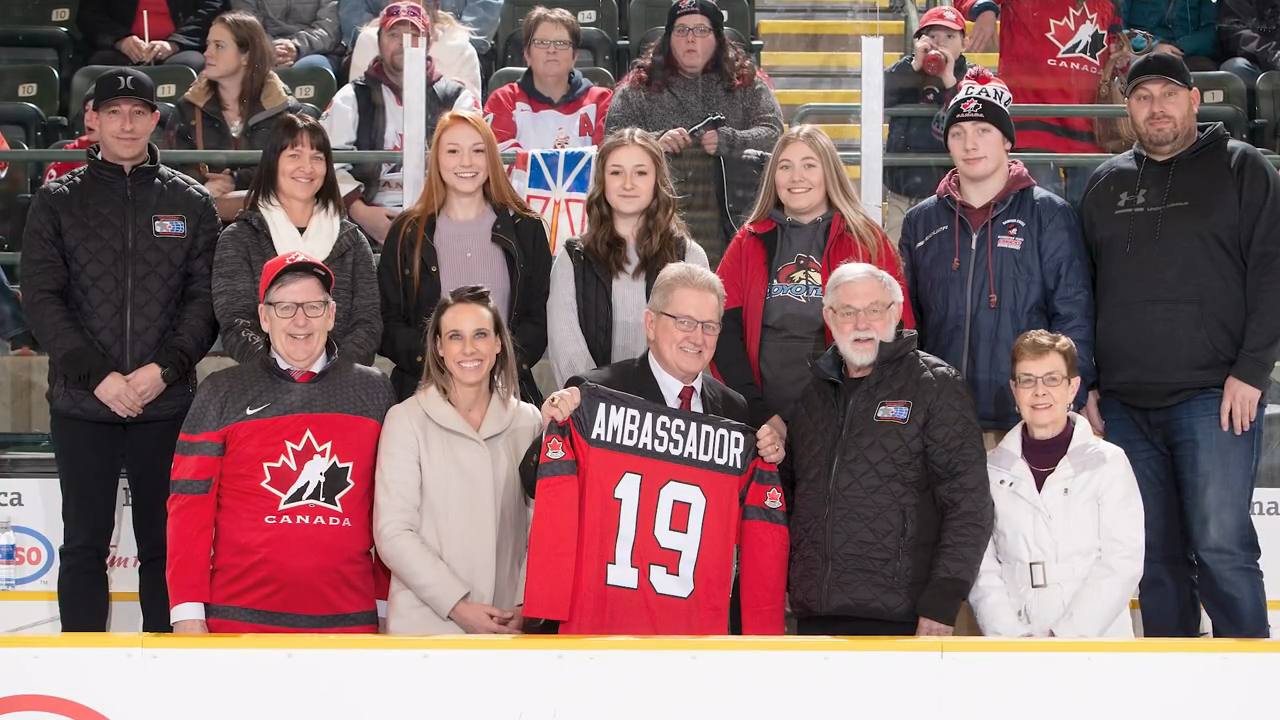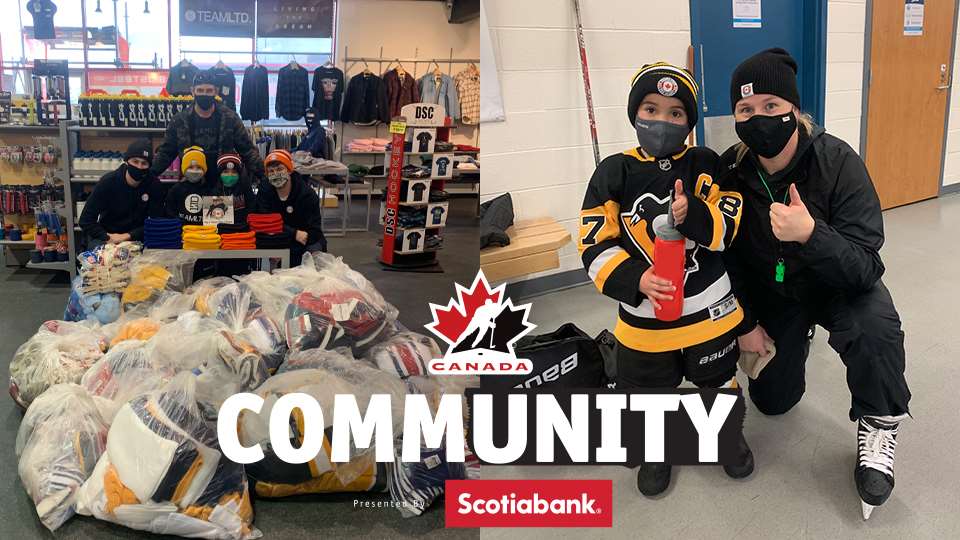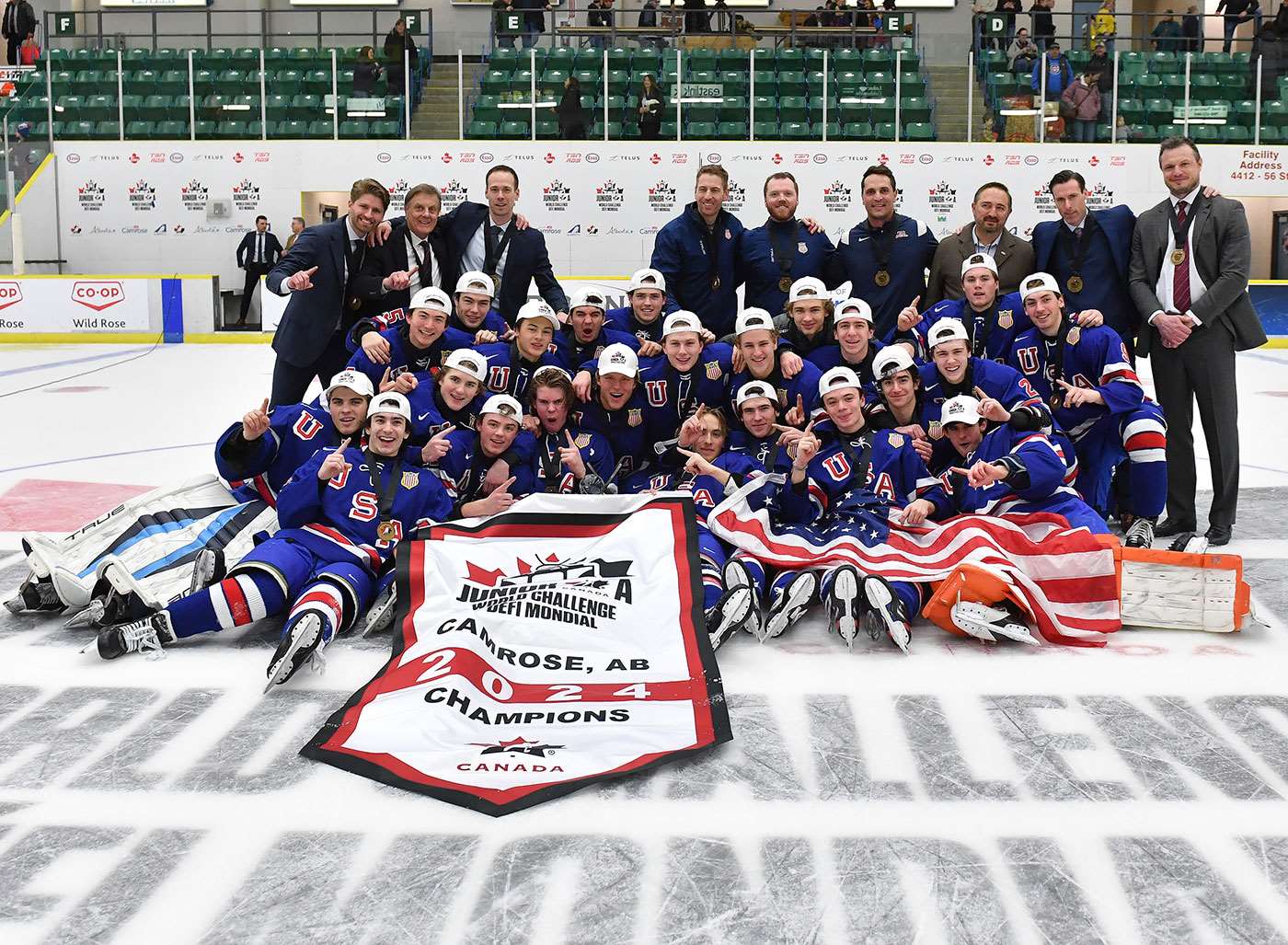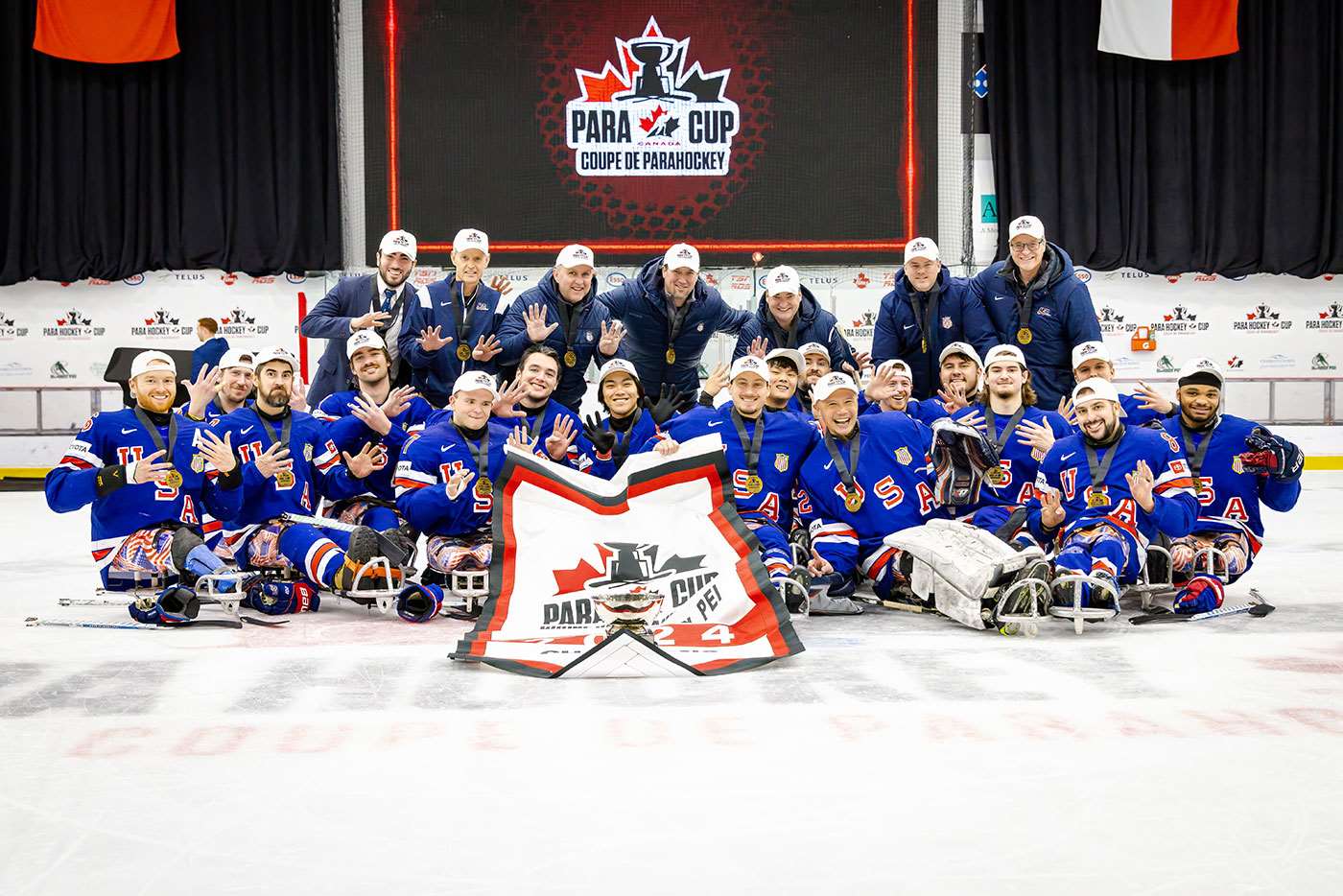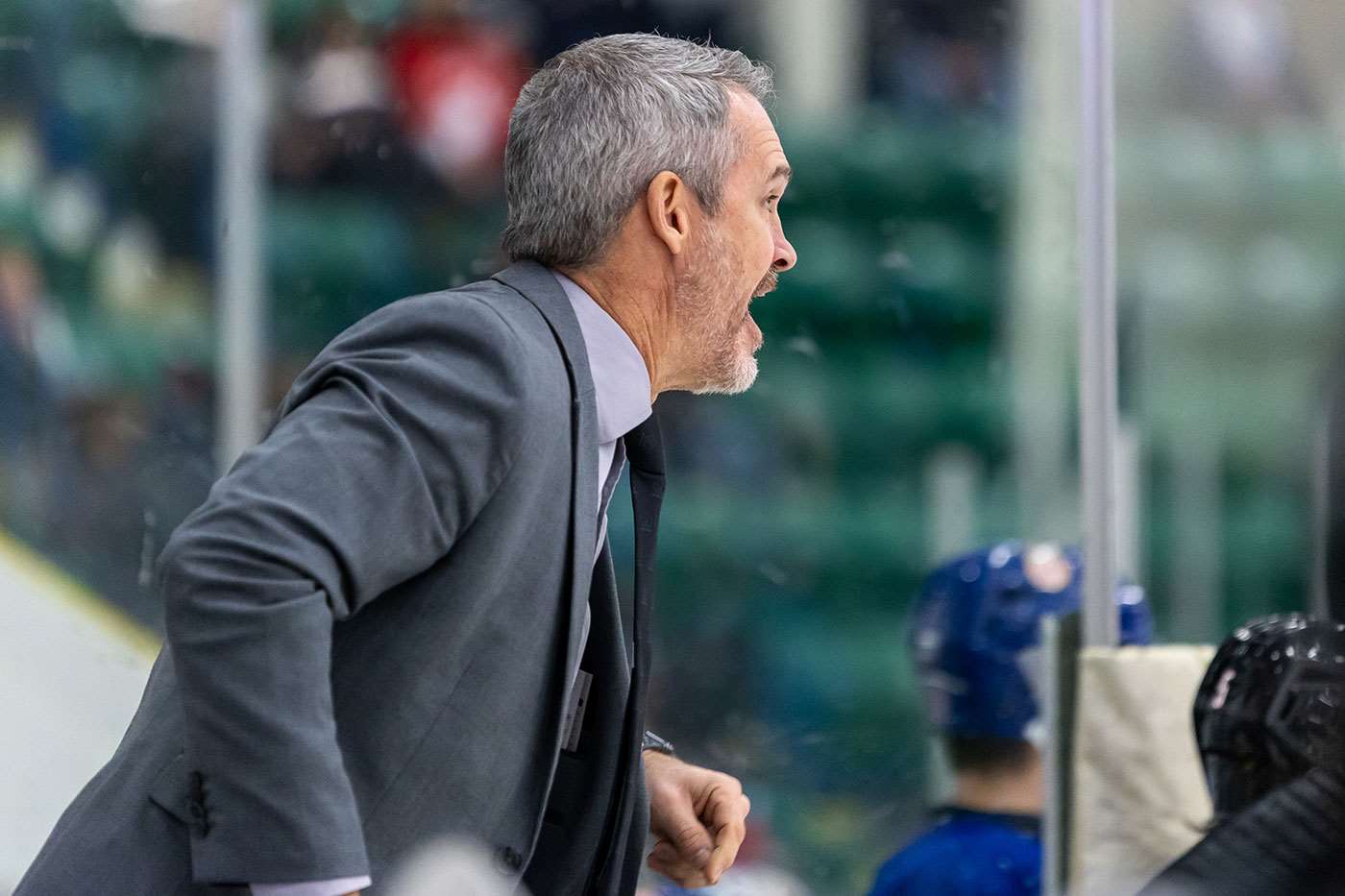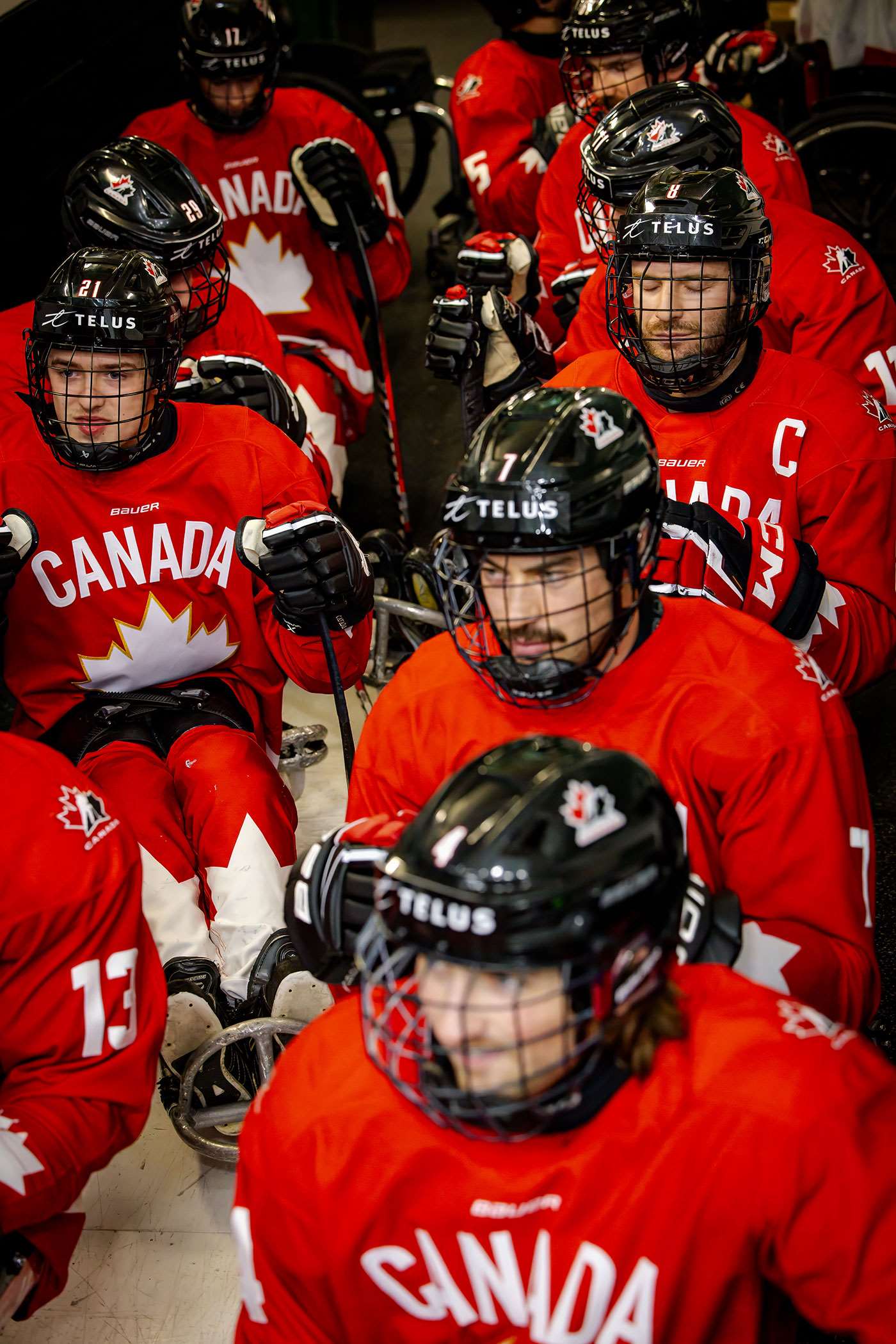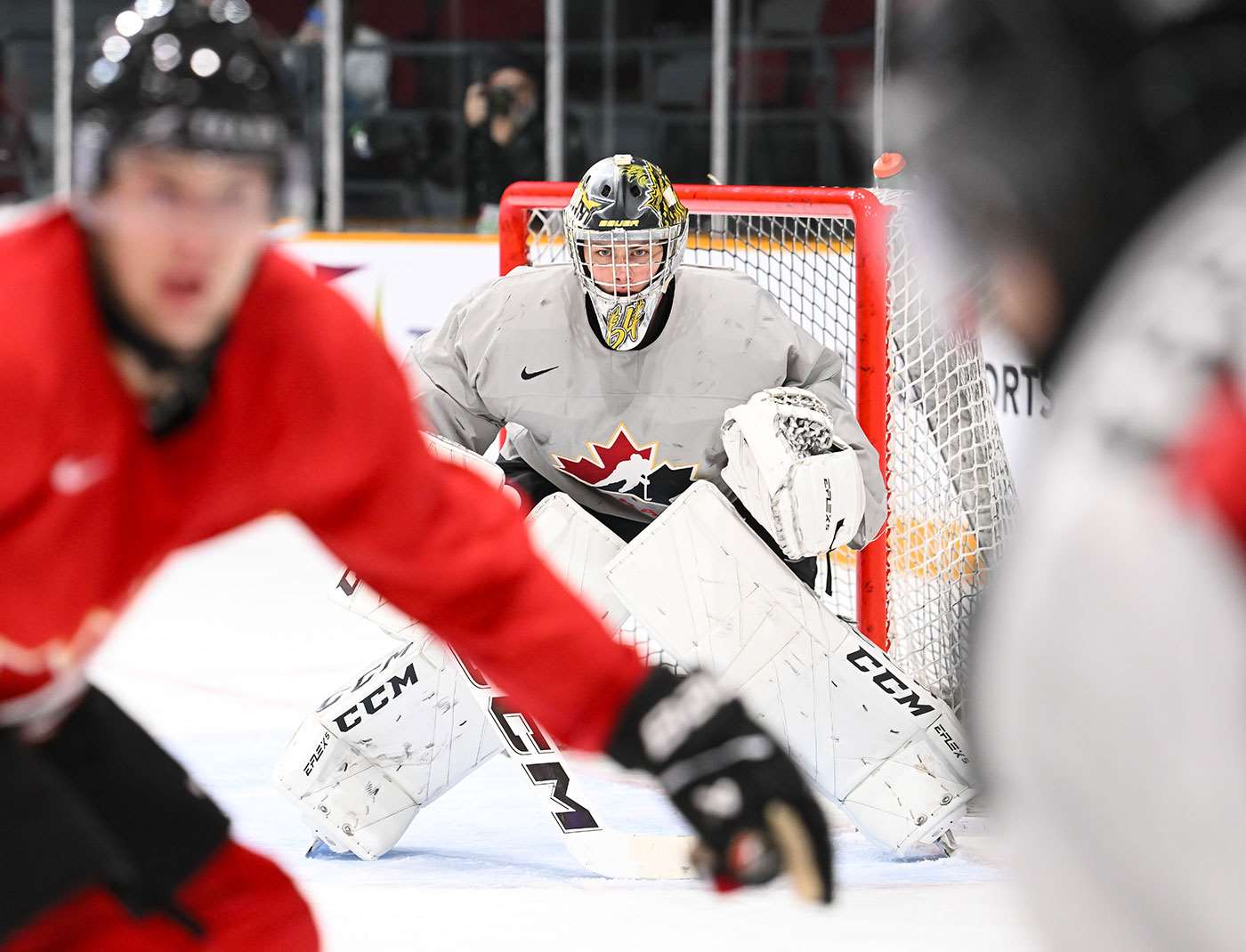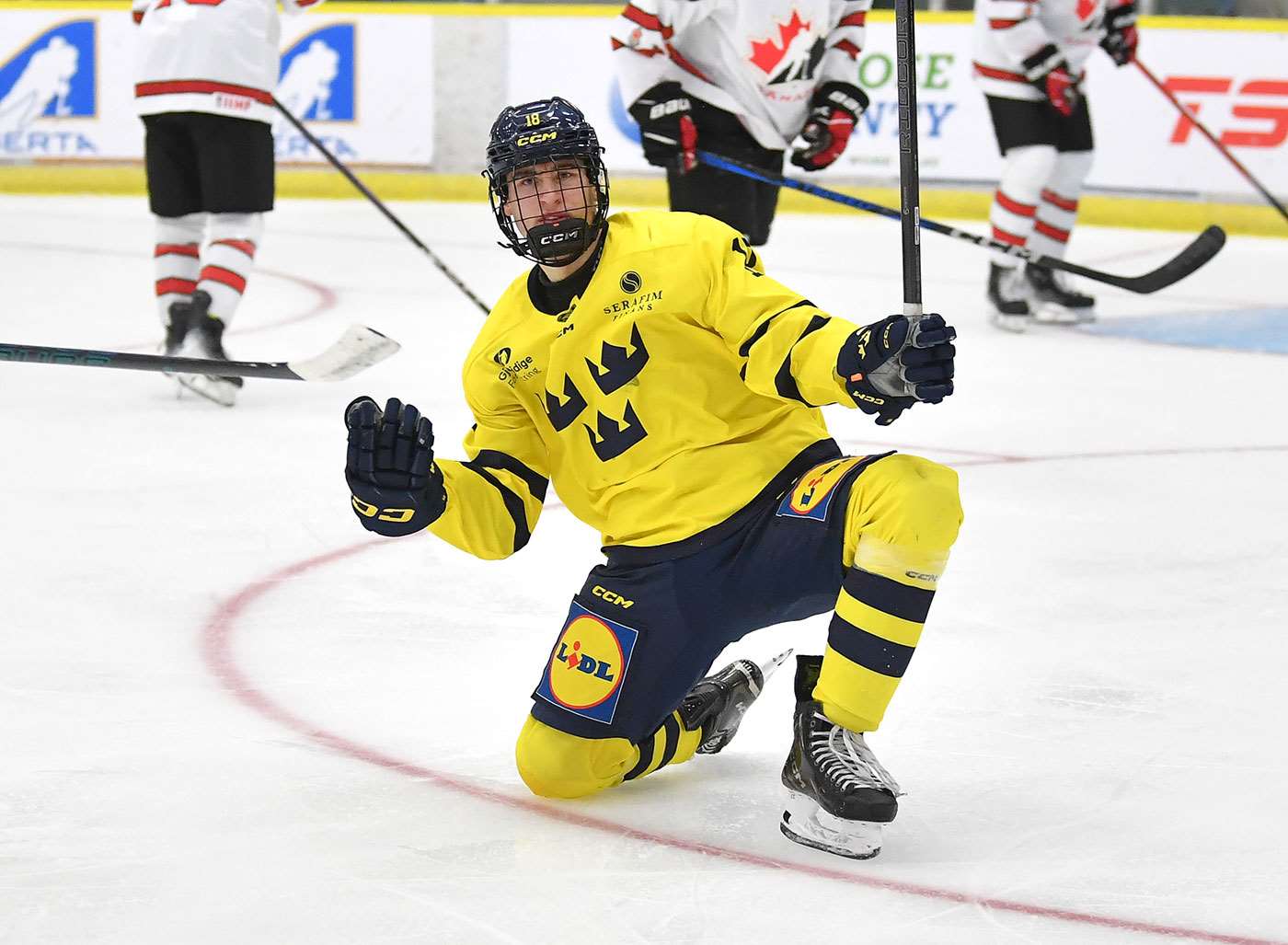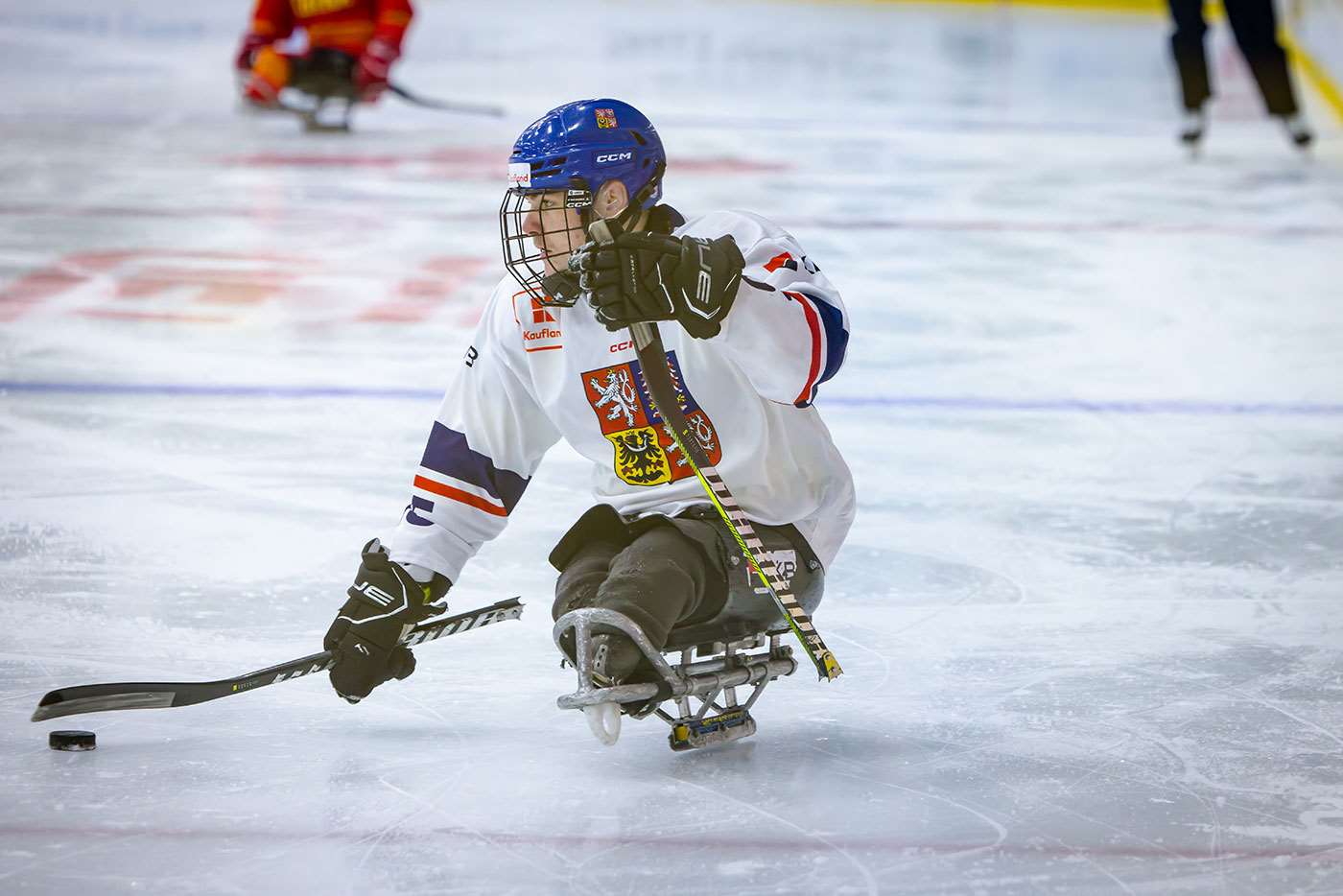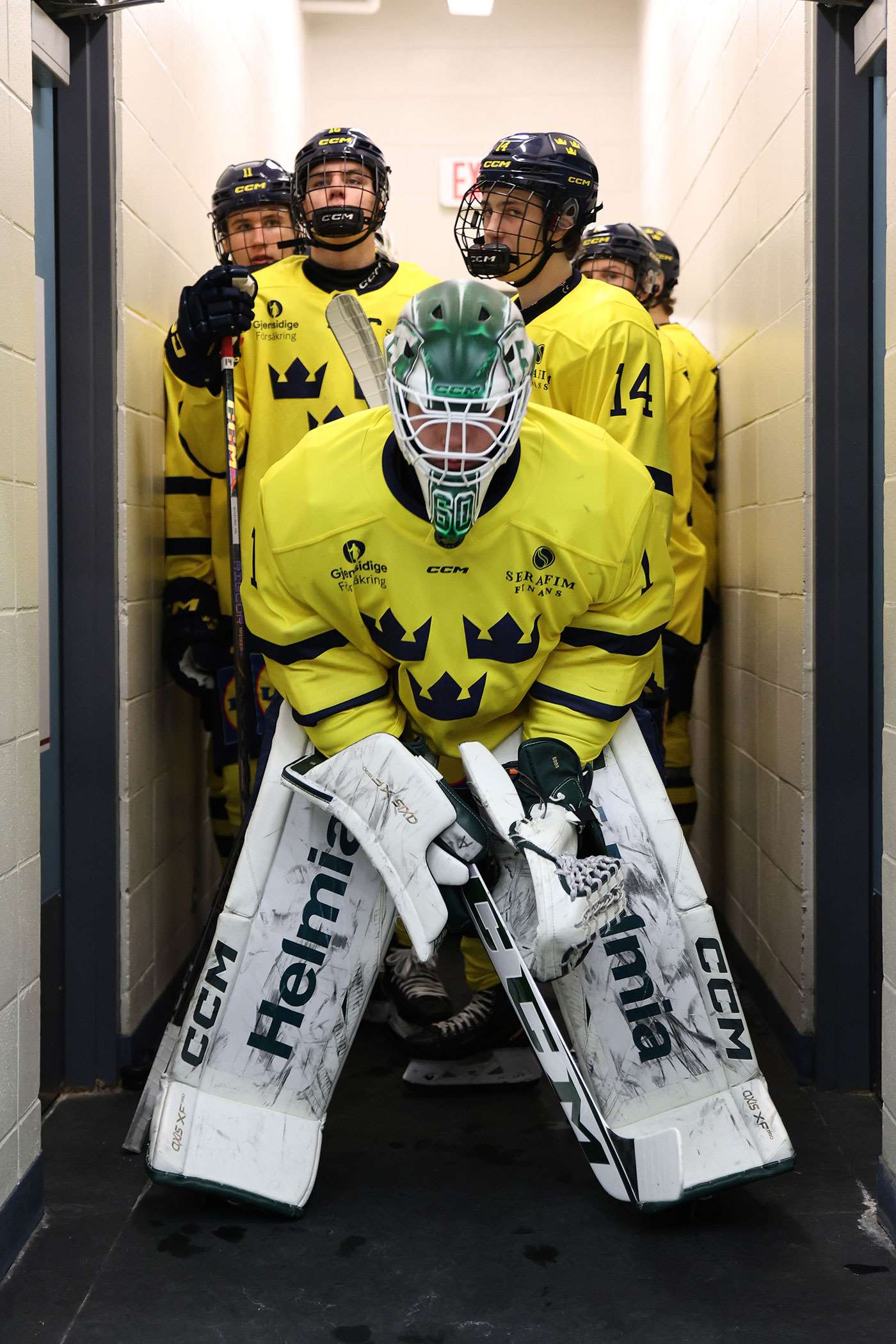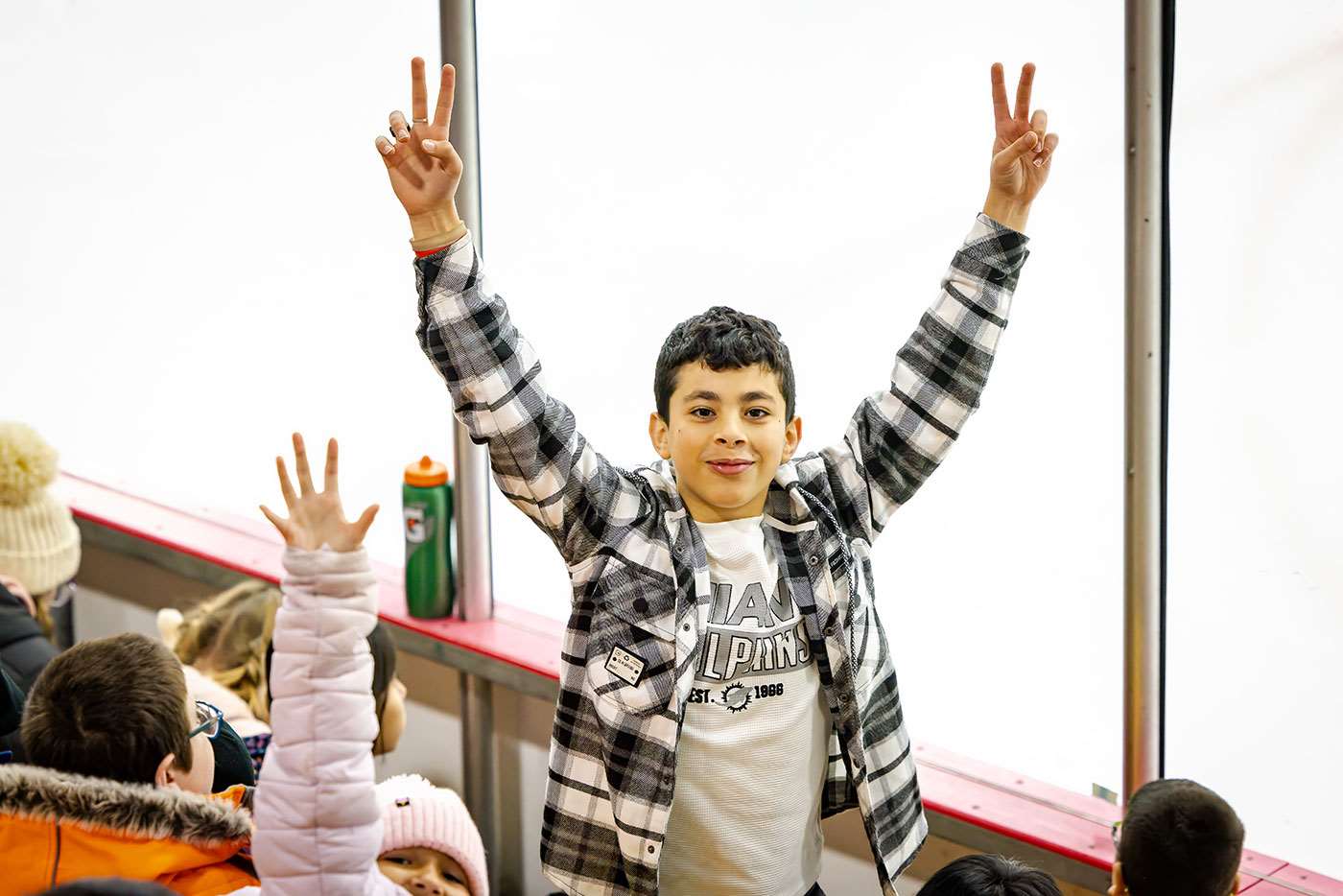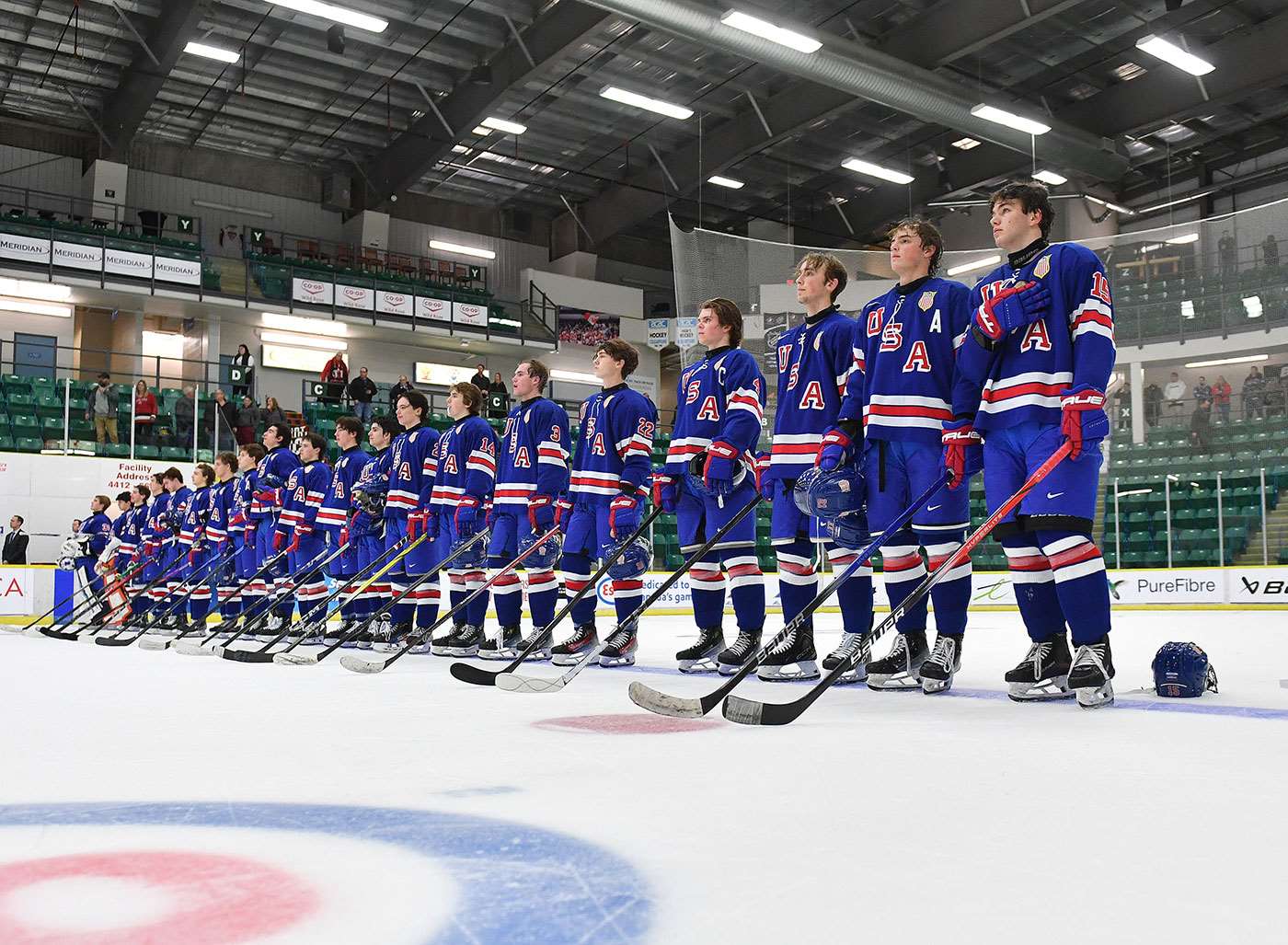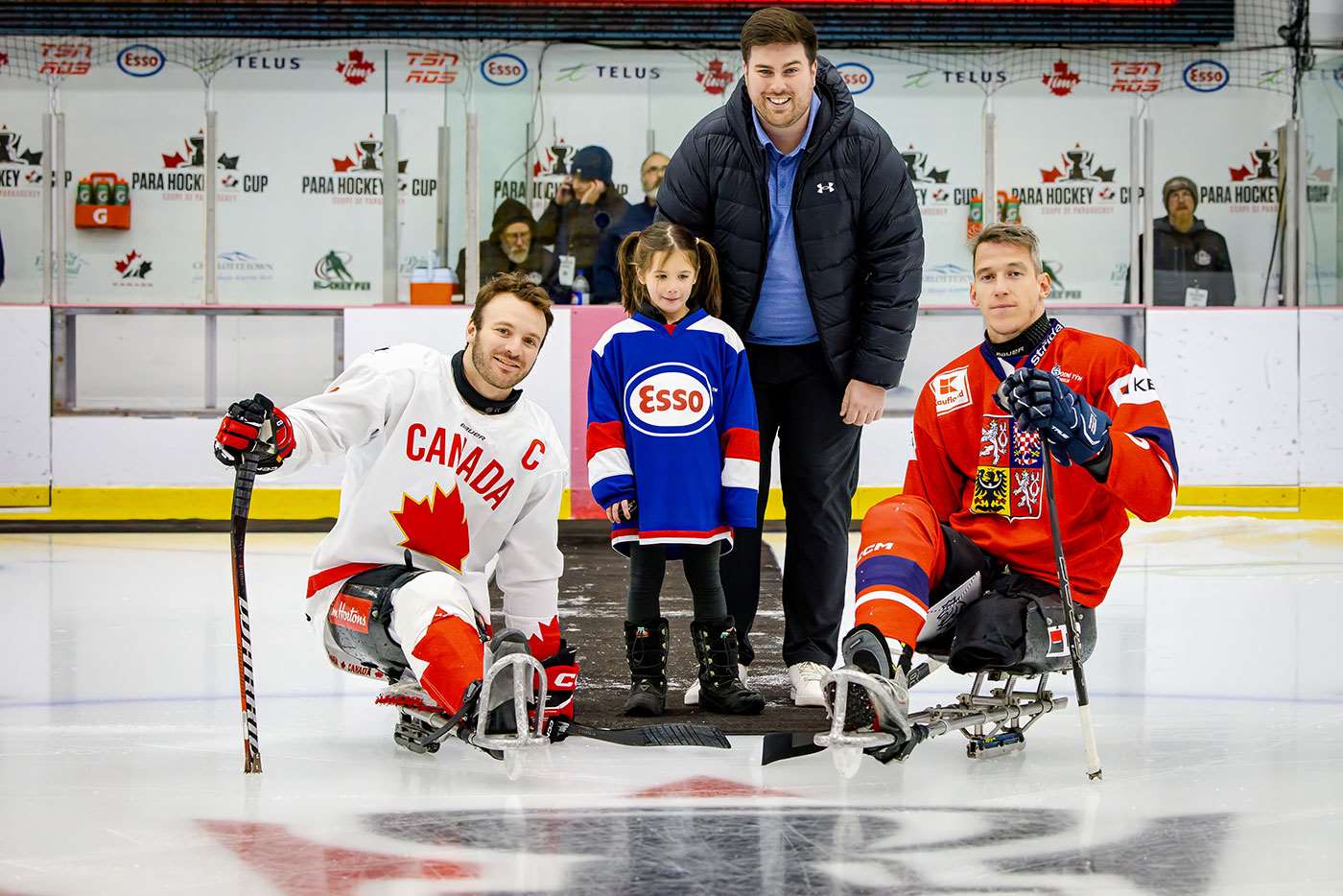
Schedule
Team Canada (Men)
IIHF World Junior Championship | Dec. 26, 2024-Jan. 5, 2025
Spengler Cup | Dec. 26-31, 2024
4 Nations Face-Off | Feb 12-20, 2025
IIHF U18 World Championship | April 23-May 3, 2025
IIHF World Championship | May 9-25, 2025
U17 World Challenge | Nov. 3-9, 2024
Hlinka Gretzky Cup | Aug. 5-10, 2024
Junior A World Challenge | Dec. 9-15, 2024
National Junior Team vs. USPORTS | Dec 12-13, 2024
Search
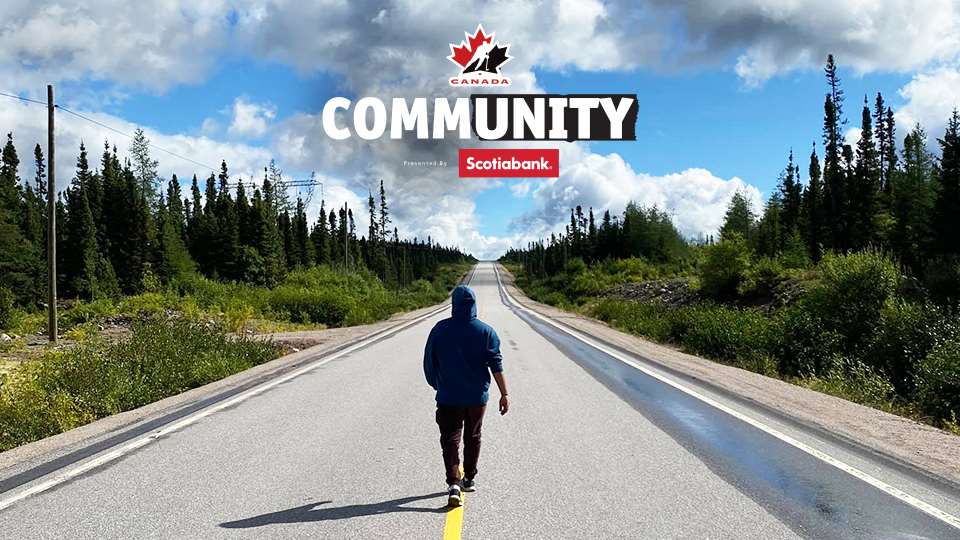
A different kind of road trip
The 330-kilometre walk to help get Aries Benuen back to school was about more than hockey – it was about community, culture and the values of the Innu First Nation

The noise in the background of the phone call was a familiar one … the organized chaos of a hockey family packing up to hit the road.
“Can you call back later this afternoon? I’m leaving to drive Aries to school tomorrow and we won’t have any service going through Labrador for a long time. We’re just getting him ready to go.”
THE JOURNEY
The journey to get Aries Benuen back to school (and back to hockey) for the 2020-21 season began in May.
When the COVID-19 pandemic hit and the Canadian economy ground to a halt, Aries’ grandfather, Sebastien, quickly realized his construction business would be without work and the family wouldn’t be able to afford another year at the Canadian International Hockey Academy (CIHA), a Hockey Canada Sports School in Rockland, Ont.
If he wanted to give 14-year old Aries the opportunity to go to school and play hockey, he would have to get creative.
His solution? A 330-kilometre walk along the Trans-Labrador Highway to raise funds for tuition.
The inspiration to do a long walk, something Sheshatshiu Innu First Nation chief Eugene Hart says has become a go-to fundraiser locally, came from fellow Sheshatshiu local Michel ‘Giant’ Andrew, who made headlines in 2012 when he walked over 900 kilometres to raise money for a dialysis machine.
INNU CULTURE AND VALUES
Sebastien and his wife Damiana took Aries in when he was a baby after Aries’ father was lost to suicide. The Benuens have raised him to have every opportunity they can provide. While that’s reflective of Innu values, the journey Aries and Sebastian have taken, in and of itself, reflects a number of Innu values.
“The walking, that mindset of fundraising and doing what you can and connecting your culture with the country,” adds Innu Nation board member Mary Janet Hill, is a display of resiliency, small-town roots and impressive community ties.
While Sebastien, Aries’ grandfather & their friends are running 300km to raise funds for #AriesBenuen the grandmothers are at camp watching the little ones & ensuring that a hot traditional, nutritious meal awaits at days end. #Innu https://t.co/H0PLwzGmmy pic.twitter.com/5ChNShx9Q4
— Innu Nation (@ntesinan) September 5, 2020
The Innu Nation includes 2,000 people and is made up of two remote Labrador communities: Sheshatshiu and Natuashish. The Benuens live in Sheshatshiu, 40 kilometres from the nearest town of Happy Valley-Goose Bay and 325 kilometres from where their fundraising walk began, in Churchill Falls.
Community and belonging come first in Innu Nation. An annual outpost event is held each spring to bring Innu across the country back home and back together. Every fall, a community gathering sees 200 or more tents pitched for a weekend of tradition and celebration.
“Even our language is still strong,” Chief Hart says. “Overall, 70-80% of people in the community speak the language, including our youth.”
HOCKEY AND THE INNU NATION
There’s another language spoken by the people of the Innu First Nation: hockey. Most local kids play the game, and Chief Hart knows how important it is to his community.
“Hockey keeps the kids active and keeps them in line rather than getting in trouble or doing things they shouldn’t be doing,” he says.
The national pastime is more than that, though.
“It gives [Innu youth] hope, it inspires them,” Hill says. “They want to do great. If they’re in local tournaments they want to show that and be proud of themselves and the community. If there’s a local tournament, you’ll hear the loudest cheers from our community.”
Council brought in Jordin Tootoo, an IIHF World Junior Championship silver medallist and the first Inuk to play in the NHL, to speak with youth and tour neighbouring communities for on-ice sessions in January 2019. His voice and his leadership at the annual national conference for the Canadian Association for Suicide Prevention was a powerful representation of hope and possibility.
“He was well loved, very inspirational,” says Chief Hart, emphasizing that representation and kids seeing themselves with the possibility of succeeding matters.
Looking forward to my visit to Newfoundland/Labrador to connect and tell my story this week. First stop Sheshatshiu Innu First Nation. @TheLavinAgency pic.twitter.com/8bxBCZSrBv
— Jordin Tootoo (@Jtootoo22) January 22, 2019
Representation matters so kids can see themselves in the bright lights of the NHL and representing their country with Team Canada, for sure, but Hill adds that kids like Aries and their skill in the game give the community hope, too.
What Aries is doing in attending the CIHA allows him to play at a more competitive level than he’d be able to at home, but he still brings the lessons he learns, the confidence he gains and the sense of pride home with him.
Ryan Lauzon, a former pro and Aries’ coach at the CIHA, strives to instill a positive attitude not just in Aries, but all of his players. While Aries is extremely “quiet and unassuming” off the ice, his polite and easy-going personality make him a fit on the team.
“You can tell he was brought up well,” Lauzon says. “If I were him, I’d feel inspired and feel the love and support from my family and my community. I think he will take it upon himself to push a little bit harder [this season] and definitely take advantage of the opportunity that was put before him.”
He’s not the first kid from Sheshatshiu to take an opportunity like this. Chief Hart guesses a dozen or more have taken the private academy route in recent years, noting that leaving to play hockey and get an education doesn’t take away from the positive impact locally.
“Other kids look up to it as fans now, they have an idol. It encourages the young ones to step up more.”
Aries Benuen is one child with an incredible opportunity, yet he represents the dreams of so many. The family continues their journey today & appreciates all the support they are receiving for Aries. Tshinashkumitinau. #AriesBenuen #Innu https://t.co/H0PLwzGmmy pic.twitter.com/rdefgEcgp1
— Innu Nation (@ntesinan) September 5, 2020
MEDIA ATTENTION
National media attention wasn’t what Sebastien expected when he planned the fundraising walk or when he and Aries set out on Aug. 29. Initially, it was family, local representatives, elders, Aries’ friends and teammates, minor hockey teams and other community members who showed up in support.
But the CBC, APTN and Macleans picked up on the story of their journey and it snowballed from there.
“I didn’t think it was going to be that big,” Sebastien says. “But with a lot of calls I received, I was really surprised.”
The media attention certainly helped raise more than $75,000, well past the initial goal. But the power of community, a passion for hockey, resilience and hope amidst trying times are the true heroes.
The Benuen family truly appreciates all the support they have received for Aries. The goal was $50k, the raise nearly $75k! Well done everyone!! This will see Aries through school, to Europe & enable him to participate in other opportunities that come his way. #AriesBenuen #Innu pic.twitter.com/9XaPtJdexi
— Innu Nation (@ntesinan) September 9, 2020
THE ROAD AHEAD
While Sebastien and his wife continue to support Aries in achieving his dreams, including making the long drive from Sheshatshiu to Rockland with him last week, Sebastien’s hopes remain like that of any Canadian grandfather.
“I’d like Aries to finish school and from there, I don’t know what’s going to happen,” he says. “Like I told him, go out there and get a good education, play hockey at the same time, do the best you can do, don’t give up on whatever you do and eventually you will succeed.”
In many ways, the 330-kilometre trek reflects the Canadian hockey journey. It’s a long road, sometimes a grind, with life lessons and memories picked up along the way. Sometimes there will be stops at Tim Hortons, sleepovers or equipment malfunctions, but the community, the teammates, the friends and family who support a player in their development will always be part of their journey.
And in some cases, a player will even have a very proud First Nation behind them.
“Would you write on the end of the story that the Innu First Nation is very proud of Sebastien and his grandson?”
Done and done, Chief Hart.
For more information: |
- <
- >

















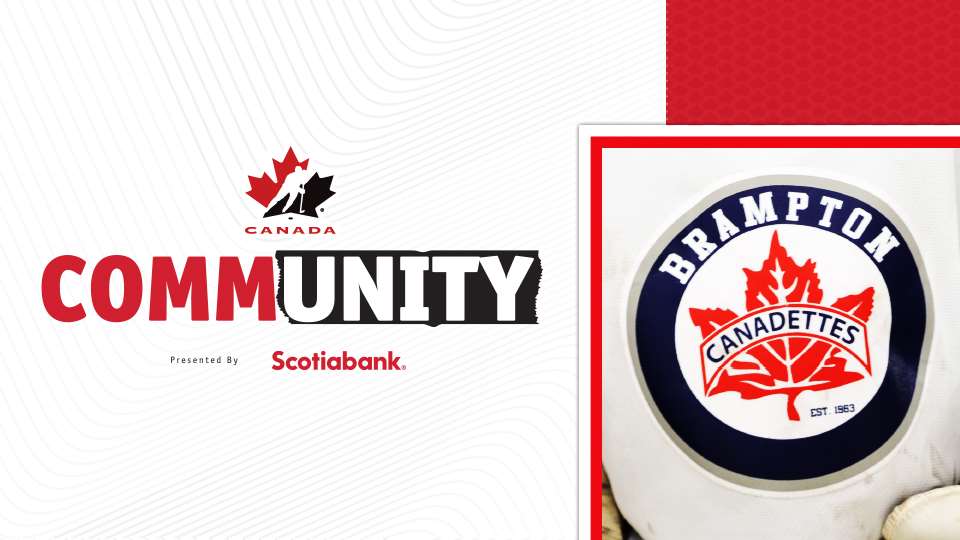
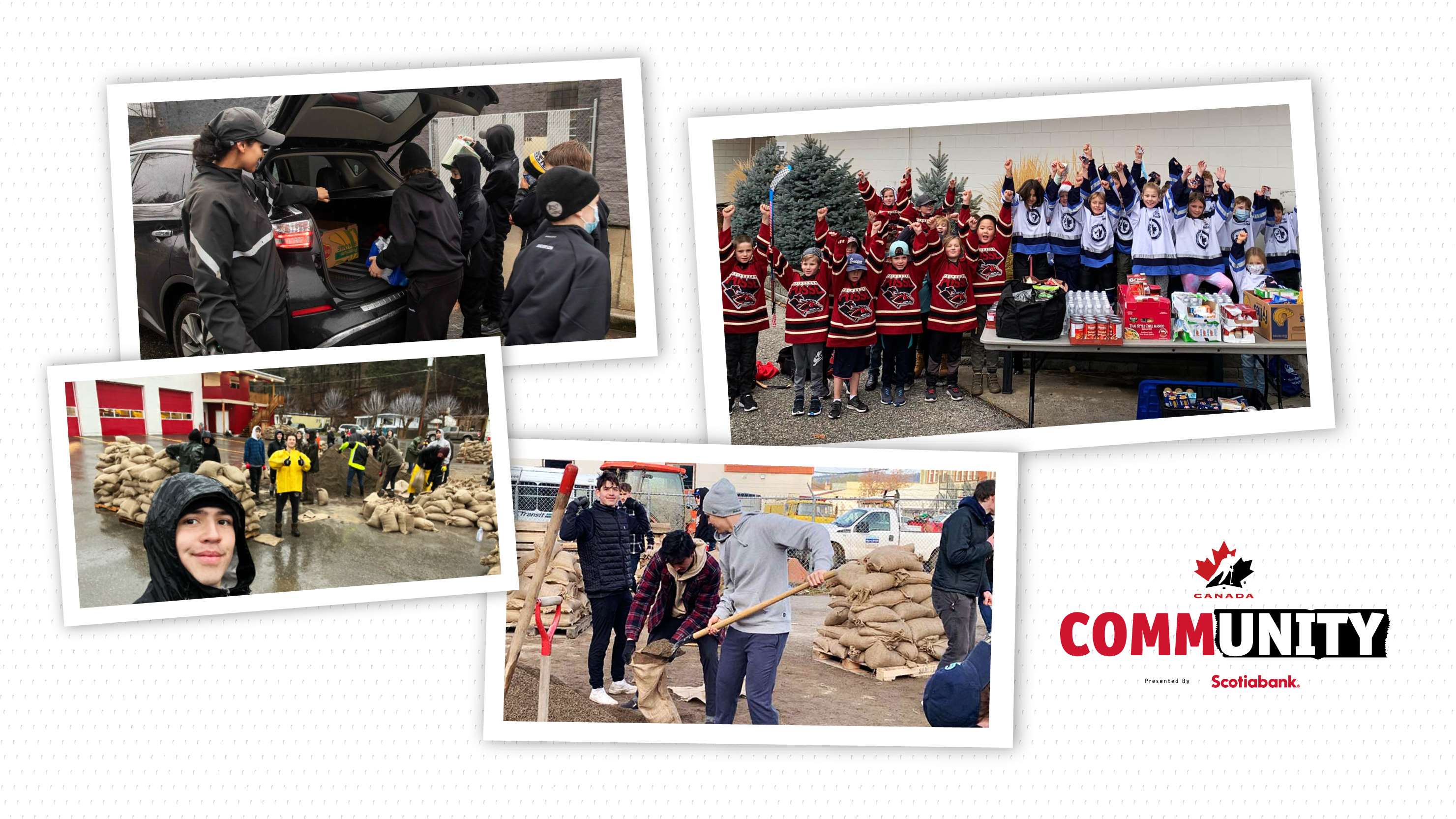
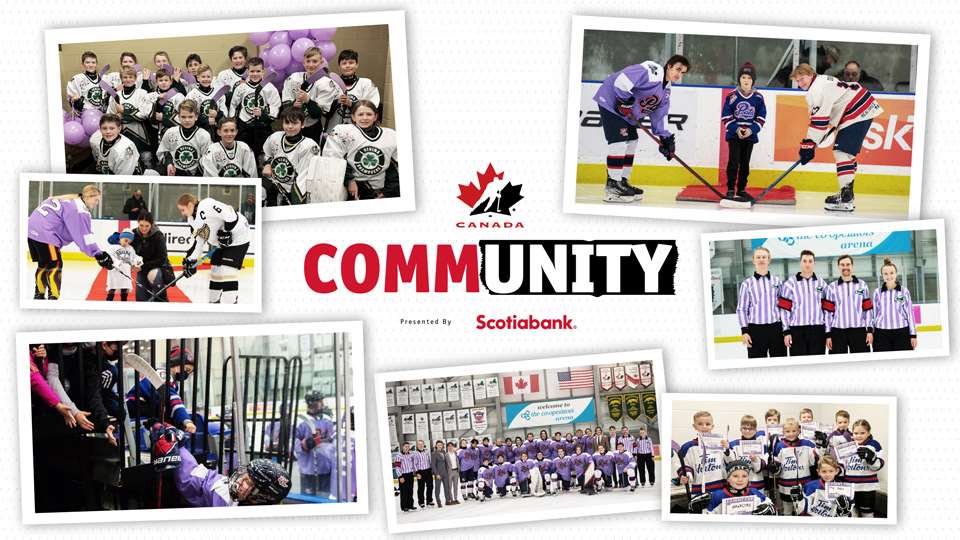
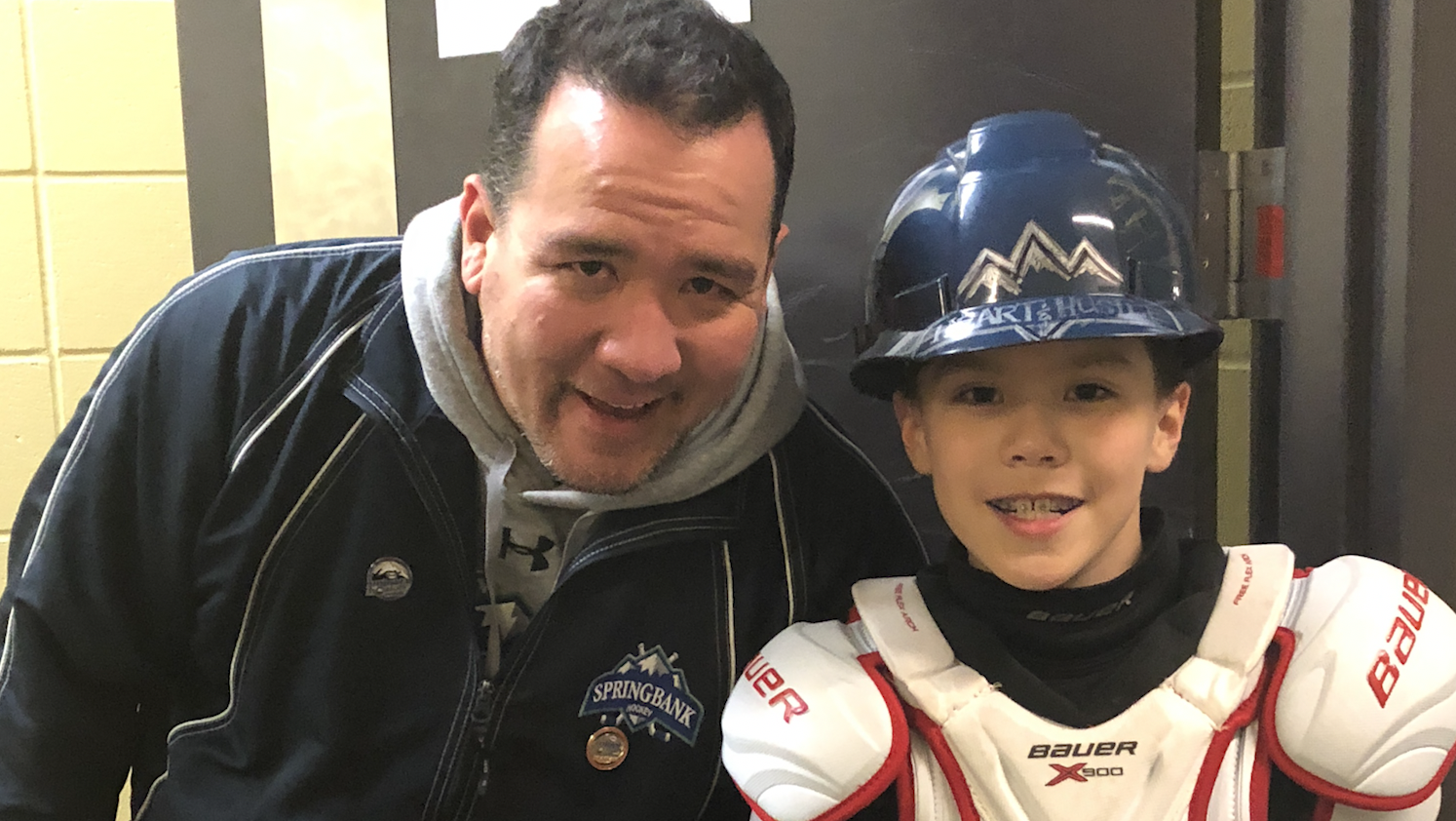

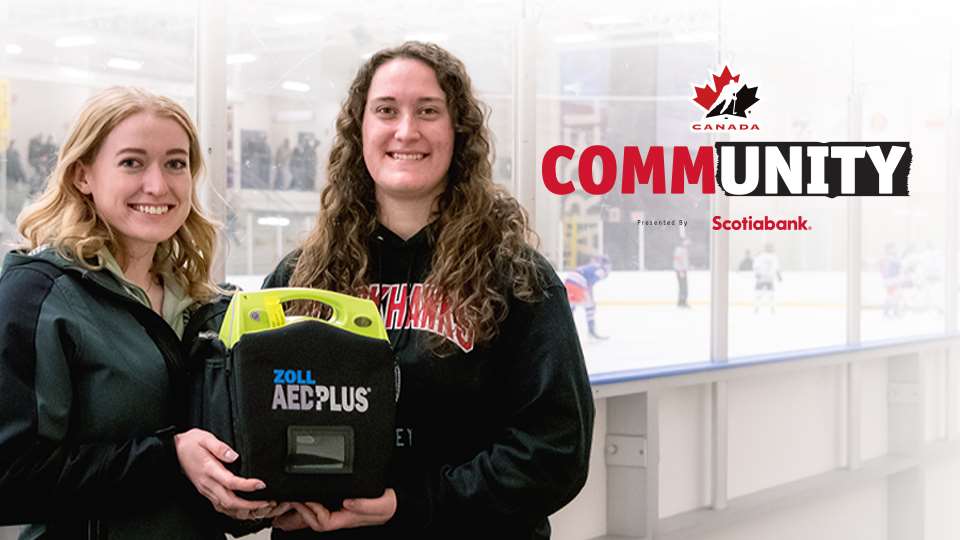
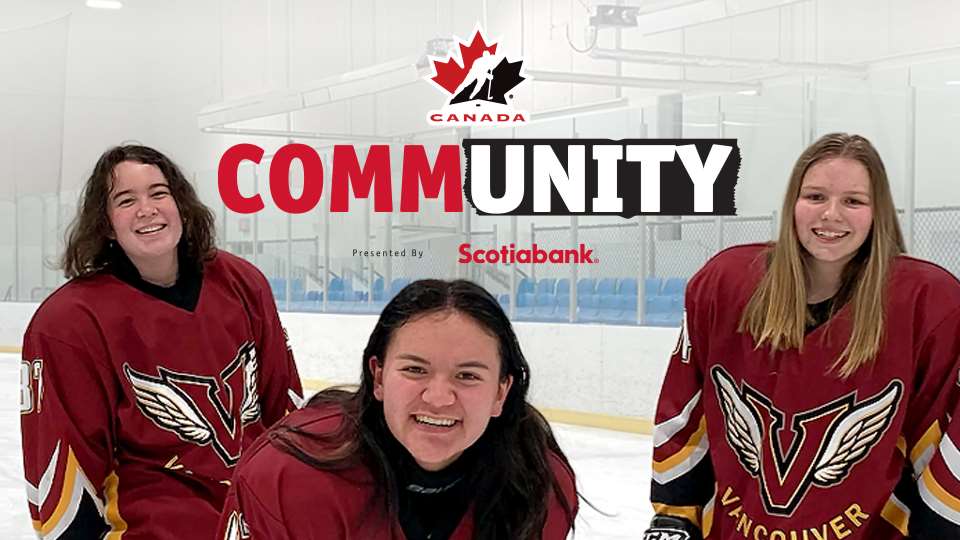
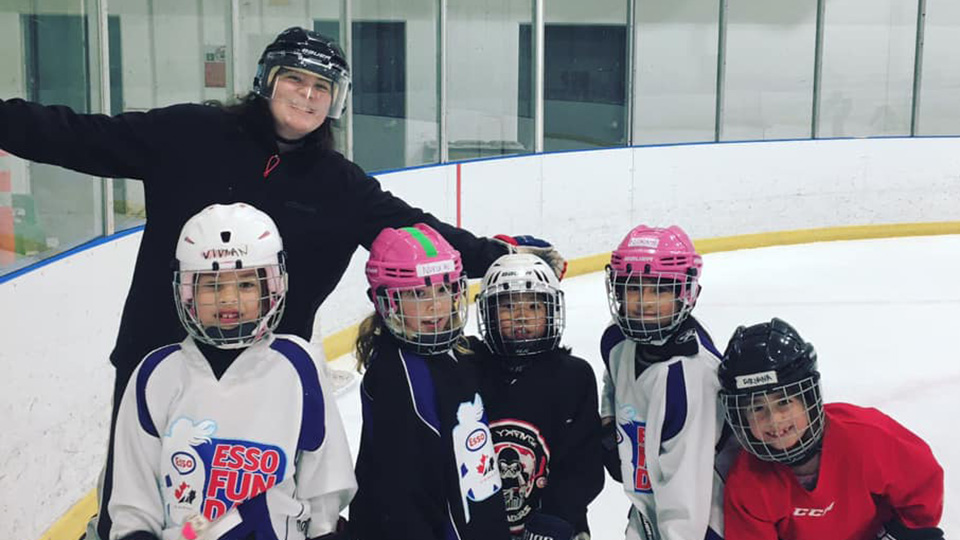 Piper Hays coaching with the Vancouver Angels. (VFIHA)
Piper Hays coaching with the Vancouver Angels. (VFIHA)
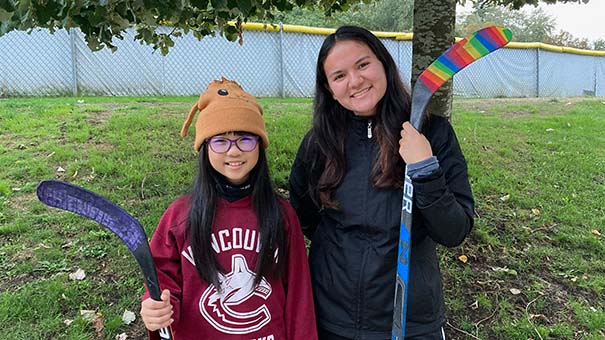 Hayley Palmer with a Vancouver Angels player she coaches.
Hayley Palmer with a Vancouver Angels player she coaches.
